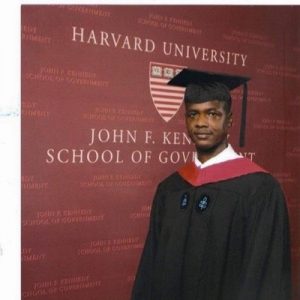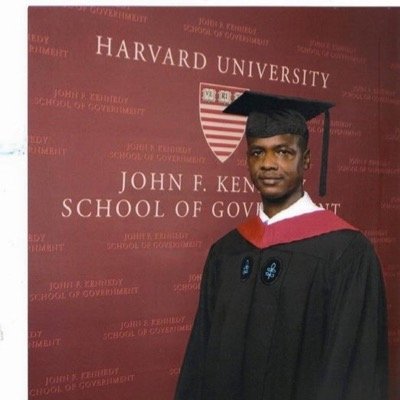
Alagi Yorro Jallow.
Mamudu: President Adama Barrow’s election victory was also perhaps the most important political development in the Gambia since independence in 1965. The first alternative government changed through democratic, accessible, and fair elections
“Twitter is now present on the continent. Thank you, Ghana and Nana Akufo-Addo.” Those were the words of the co-founder and CEO of Twitter, Jack Dorsey, in a tweet yesterday. Within two minutes, yes two minutes, the President of Ghana, Nana Akufo-Addo, tweeted: “The choice of Ghana as HQ for Twitter’s Africa operations is EXCELLENT news. Gov’t and Ghanaians welcome very much this announcement and the confidence reposed in our country”.
Why Ghana? Jack Dorsey gave insightful reasons for their choice of Ghana. The statement reads: “As a champion for democracy, Ghana is a supporter of free speech, online freedom, and the Open Internet, of which Twitter is also an advocate. Furthermore, Ghana’s recent appointment to host The Secretariat of the African Continental Free Trade Area aligns with our overarching goal to establish a presence in the region that will support our efforts to improve and tailor our service across Africa.”
It is important to note that Nana Akufo-Addo sealed the deal in a virtual meeting on April 7. It takes foresight, digital literacy, and continuous interest in learning to engage in such agreements. Can President Adama Barrow understand the nuances of cutting-edge technology and its import for jobs and innovation? Can the stone age polymorph pull off a deal this juicy? Will the government continue to make any sense of the future without recourse to free speech consequences?
The Gambia milked economic dividends, political goodwill, legitimacy, democratic responsiveness, and international cooperation, besides philanthropic behaviors from the global recognition arising from the historic December 2016, Presidential election that was widely hailed and described as an indication of great hope for the political economy of growth, democracy, and human capital in the sub-region, particularly for the Gambia, following President Adama Barrow achieved a victory which ended tumultuous twenty-two years under President Yahya Jammeh, who ruled with an iron fist for, transforming the Gambia from benevolent dictatorship to democracy.
However, the Gambia was being hailed as a beacon of democracy within the ECOWAS sub-region and Africa following Adama Barrow’s elections. In equal measure, investors and tourists have adopted a wait-and-see attitude until the round of transition and reforms cycle progresses. Unfortunately, tribal politics and political bickering destroyed the Gambia’s sovereign brand branding The Gambia appears dead silent.
Twitter’s advertisement for several positions requiring deep knowledge of major African languages is already out there. The significant benefits will go to Ghana. Businesses follow reason and facts, not emotions or wishful thinking. They exist to make money, not to feed fat cats, or go to risky places. Why would smart money choose the Gambia when Ghana gives incentives such as 15-year tax holidays, free land, and other policy initiatives, which would help drive their businesses? Why would Foreign Direct Investment (FDI) go to the Gambia with ratings with a rank 155 among 190 economies in the ease of doing business, according to the latest World Bank annual ratings with a grade of 131 in the ease of doing business, compared to Ghana’s position of 118? The Gambia faces security challenges, an unfavorable regulatory and legal environment, and unstable Macroeconomic policies.
Mamudu: Why would any business choose the Gambia? When the Gambia’s insecurity challenge is not adequately addressed, tribalism and numerous social and political grievances fuel the flashpoint for violence and create insecurity. Conversely, insecurity is the antithesis of security and has attracted such common descriptors as want of safety, danger, hazard, uncertainty, want of confidence, state of doubt, inadequately guarded or protected, instability, trouble, lack of protection.
Being unsafe, it took a single policy directive for Twitter to know the Gambia is a no-go area. There is no good company of Overseas Private Investment whose best assets are its employees would want to spend an unreasonable amount of money on life insurance and armed escorts to protect those in its employ for fear of banditry and outright slaughter.
How about the see-saw monetary policies, high inflation, and unemployment? Are the consequences of unguarded quantitative easing lost on the government? Are they unconcerned with inflation depreciation and loss in bonds caused by their “ways and means” abracadabra?
Mamudu: Is a place notorious for religious and tribal hypocrisy and ethnic strife the best place for a social media behemoth? How about our arbitrary, knee-jerk, and counterproductive regulatory environment? The whole world paid attention to the Gambia with our sovereign Brand. They could be business school case studies on how not to stifle innovation. If Twitter were to consider the Gambia, what our folks would have demanded in bribes and corruption would have killed any enthusiasm the company may have had. The Gambia’s reputation precedes it as a prodigious and prodigal consumer instead of a shrewd and calculating producer. From a political and economic perspective, our commitment to the rule of law is a charade, and the world knows it. Same for our understanding of property, intellectual and contractual rights.
Mamudu: Ghana is eating our lunch, and we seem incapable of defending our portion. The crises facing the Gambia are extraordinary, requiring the most innovative and most patriotic minds to tackle. We missed the mark long ago, and we do not seem to realize how big a hole we have dug ourselves in. How we respond, as we advance, will set the trajectory for coming decades. Nothing can save us except well-meaning reforms and restructuring. No one will take a country enmeshed in selective policies. Playing favorites with the foreign exchange rate is not only wicked. It kills competition. Let the Dalasi have a market-driven exchange rate and ease forex restrictions on business. Subsidies for the rich and the middle class must end to curb luxurious consumption. This can be done by the complete floating of basic food commodities prices. Efforts to fix the power sector are commendable, but a lot still needs to be done.
We do not see any positive sovereign branding in local and international media, promoting its image as a peaceful and stable investment destination. It would be good to have adverts promoting the Gambia running on global media suck as Aljazeera, TRT world international news CNN, the BBC, and other major outlets. (We have, on aggregate, as a country, used about US$1 million on travels, per-diem payments and engaged on non-essential expenditures, etc., etc.) Such adverts can help counter the negative perception of the country’s uncertainty prevailing around the world.
The biggest losers of such negativity are sectors heavily relying on foreign inflows like the capital markets and the hospitality sector. Unlike the Gambia, Ghana and Mauritius government takes national branding seriously. That is why Ghana and Mauritius brand ranks higher than the Gambia. Dubai’s rise as an investment and tourism destination in the middle of a desert heavily relies on deliberate branding and government promotion.
As a nation, we must not subvert the transition and reforms process and program. Anybody who subverts the transition process must be hung for treason. Let the legitimate will of the people prevail. In the end, if the transition and reforms cycle executes successfully, the Gambians come out as a favorable investment destination, a working democracy with solid institutions. Investors love predictability, stability, law rule, and incorruptible judges in commercial disputes and political stability.
Mamudu: Finally, the rent mentality has to be erased from our memory by reforming the tax system. If we pay reasonable taxes, chances are, we will demand accountability and responsibility. We will reject a method of collecting taxes that kills businesses. It is painful to the vulnerable and needy. By all indicators, Ghana is leading.

